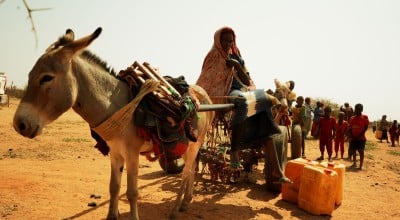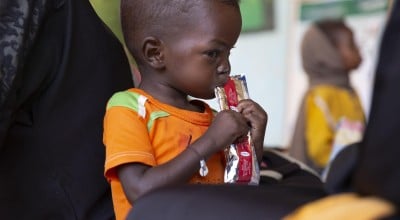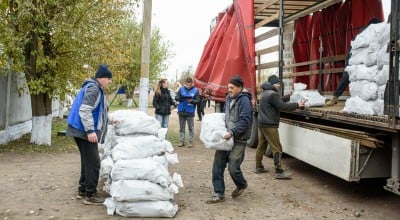
Read our 2024 annual report

Knowledge Hub
5 key messages from the UN Climate Change talks
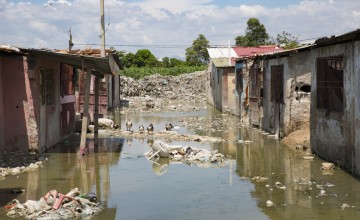
On Sunday December 15, after overrunning by two full days, exhausted negotiators concluded the latest round of the UN climate change process in Madrid. I was there on behalf of Concern Worldwide to urge governments to take ambitious and urgent climate action for the world’s poorest people.
Here are the key takeaways.
Takeaway 1: This is urgent
The talks this year began with a stark reminder of the changes to the climate that we’re already seeing when the World Meteorological Organisation released the initial findings of their annual State of the Global Climate report.
It does not make for happy reading.
This year marks the end of the warmest decade on record. We are seeing widespread marine heatwaves, seawater is 26 percent more acidic than at the start of the industrial era and sea level rise is accelerating. All driven by greenhouse gases from human activities.

Takeaway 2: This is *really* urgent
The window of opportunity to limit the worst impacts of climate change is closing.
Concentrations of carbon dioxide in the atmosphere continued to rise in 2019. Current emissions targets put the world on course for a 3 to 4 C temperature rise by 2100.
We can limit global warming to 1.5 °C. But only if commitments and actions are scaled up to deliver emissions reductions of 7.6 percent every year between 2020 and 2030. This will require huge changes in how we use and produce energy, to the way we manage land, and to our transport systems.
Next year, countries need to resubmit their national plans for reducing greenhouse gas emissions ahead of November when they will once more reconvene to continue the international talks in Glasgow.
These new plans will need to address the gap between current action and what science says is necessary to meet our goals.
Takeaway 3: We need to stand by those worst affected
The talk of global trends shouldn’t mask the very real human impact of these figures. Concern works with some of those people who are already facing devastating impacts. Climate change is one of the key drivers of the rise in global hunger, after a decade of decline.
Those who bear the least responsibility for climate change are the ones who are suffering the most.
They are also the people driving forward action on climate change. Of the 77 countries that have committed to cut greenhouse gas emissions to net zero by 2050, 47 are Least Developed Countries.
Often, the call for action is at great risk to their own safety; globally, more than three people a week are murdered, and many more criminalised, for defending their land and the environment.
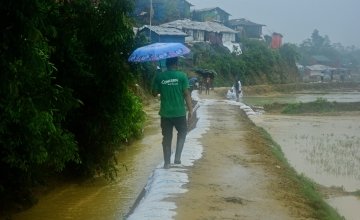
At the end of the climate talks, Indigenous Peoples, workers, civil society and young people called for recognition of human rights in the negotiations, social justice and for blockers to ‘get out of our way’.
Takeaway 4: Pushing back the difficult decisions
There were many contentious issues on the agenda of this year’s climate talks.
In the run-up, this year’s meeting was widely referred to as the ‘Loss and Damage’ talks - there was going to be a focus on how to address the residual negative impacts of climate change that we’re not able to mitigate or adapt to.
But fresh commitments to boost climate change support in order to deal with these losses were not delivered, with sticking points over how and to who support should be delivered.
Finance for climate change more broadly was, as always, a major focus of discussions. Since 1970, the UN has urged wealthy countries to spend 0.7 percent GNI to support poorer countries and meet worldwide goals on eradicating poverty.
However, climate change will make eradicating poverty much more difficult and costly. Sadly, there was limited progress in getting new, long-term funding for adaptation.
The talks in Madrid were also aiming to finalise the ‘rulebook’ for implementing the Paris Agreement. Here again progress was slow.
A key sticking point were the rules for carbon markets where countries fought over the accounting rules to prevent double counting of emissions reductions, as well as over language guaranteeing the recognition of human rights and whether a share of the proceeds from selling carbon offsets should be set aside to fund adaptation in vulnerable countries.
The most positive interpretation of this slow progress was that weak rules haven’t been set in stone; there’s still the chance to increase the ambition next year.
Takeaway 5: Political will is essential
After a year that saw growing public mobilisation on climate change, the disconnect between the progress in the talks and what people are calling for is stark. It’s clear that greater political will is needed for the UN process to progress.
By the time of the talks next year, countries need to have submitted their revised, more ambitious plans to act on climate change. To make these new plans ambitious enough, much more public action will be necessary.
Maintaining momentum on climate change in the face of slow progress is difficult but not negotiable. The UN Secretary-General António Guterres captured this sentiment in his closing speech, saying:
Read below about what Concern is doing to fight the effects of climate change.



